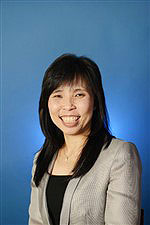 On Monday, Singapore’s Infocomm Development Authority (IDA) announced a regulatory framework for unlicensed access to unused radio spectrum in the broadcast TV frequency bands, known as TV white spaces (TVWS).
On Monday, Singapore’s Infocomm Development Authority (IDA) announced a regulatory framework for unlicensed access to unused radio spectrum in the broadcast TV frequency bands, known as TV white spaces (TVWS).
Radio spectrum is, more than ever, being identified by policy makers as a key asset in developing the digital economy and, more broadly, the overall economy. The remarkable growth in the use of smartphones and other wireless devices in recent years has exponentially increased demands on radio spectrum. Mobile traffic is predicted to increase 11-fold over the next five years globally, with wireless devices contributing the majority. Policymakers in many countries are actively looking to both maximise spectrum resources and increase the efficiencies made in their use.
Virtually all sectors of the economy – including education, healthcare, logistics, retail and wholesale, and a wide range of small and medium businesses – benefit from affordable and efficient wireless broadband services. Increasingly, these services are being accessed through unlicensed spectrum such as Wi-Fi networks and short-range devices. Thus Wi-Fi and TVWS, along with other uses of unlicensed spectrum access, offer a great deal of potential for economic growth and development.
What’s more, everyday citizens here in Singapore will see the benefits of the technology. TVWS technology can be used to improve and expand Wireless@SG, the island-wide free Wi-Fi service provided to all citizens. Singapore Power has used the same technology as backhaul for a smart metering service that would be more convenient for consumers than manual meter readings, and more energy efficient as well – leading to less expensive energy bills and a lighter environmental impact.
Microsoft has long advocated for increasing access to spectrum with more flexible and forward-looking regulation. We commend Singapore’s IDA for their open, consultative and forward-looking approach to this issue, and the release now of the response to their recent industry consultation. With this statement, IDA has positioned Singapore at the forefront globally of a movement that will reform spectrum allocation and revolutionize access and usage for the future.
The IDA’s announcement includes a clear set of “rules of the road” addressing how industry leaders and start-ups can help create and drive TVWS-related opportunities in Singapore before exporting these successes around the region and around the world. These opportunities are not just in tech manufacturing of the components such as chipsets, devices and transponders – though this is itself a crucial opportunity – but also in the software, the consulting and integration tools, and the necessary expertise and training as this technology moves into the market.
One issue coming to the forefront of dynamic spectrum access developments – of which TVWS is one crucial example – is the requirement for the deployment and management of the database required for spectrum access and assignation. In this and other emerging opportunities, Singapore now has the chance to foster leading industry players who will cut their teeth in Singapore and then export their expertise to the world.
Other regulators, including the U.S. Federal Communications Commission, the United Kingdom’s Ofcom, Industry Canada and the European Commission’s Radio Spectrum Policy Group, have recognized the economic and social value that can be derived from increased dynamic access to finite spectrum resources. Through trials and pilots, many other regulators around the world are looking at whether and how to enable opportunistic access to unused frequencies.
Microsoft, as a founding member of the Singapore White Spaces Pilot Group and through our other TVWS pilots across the world, has contributed to this process. We are pleased to have the IDA’s active support of our pilot projects in Singapore, and we’re excited to see IDA at the forefront of this issue on the global stage. At the World Telecommunications Development Conference in Dubai earlier this year, IDA helped drive the adoption of a modified resolution (Resolution 9) to consider new spectrum-sharing approaches, thus promoting this movement formally and globally.
Singapore now sits at the turning point of a very exciting future. We hope that industry will seize the initiative to move forward with this opportunity, and we look forward to continuing to contribute to the advances being made regionally and globally.
